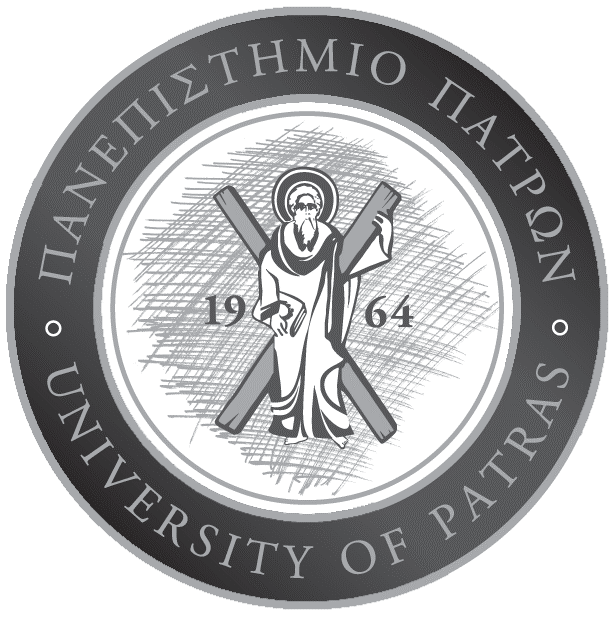Lecturer
Recommended Reading
Διδακτικά Βιβλία (Εξεταστέα Ύλη) – Εύδοξος
- Πέτρος Μετάφας, Σημειώσεις για τις Επιστήμες. Φιλοσοφία, Ιστορία και Κοινωνιολογία των Επιστημών. Εκδόσεις Πανεπιστημίου Πατρών.
- James Ladyman, Τι είναι η Φιλοσοφία της Επιστήμης, Πανεπιστημιακές Εκδόσεις Κρήτης.
- Herbert Butterfield, Η Καταγωγή της Σύγχρονης Επιστήμης (1300-1800), εκδ. Μορφωτικό Ίδρυμα Εθνικής Τραπέζης.
- Richard S. Westfall, Η Συγκρότηση της Σύγχρονης Επιστήμης, Πανεπιστημιακές Εκδόσεις Κρήτης.
- Peter J. Bowler, Iwan Rhys Morus, Ιστορία της Νεότερης Επιστήμης, Πανεπιστημιακές Εκδόσεις Κρήτης.
- Alan F. Chalmers, Τι Είναι Αυτό που το Λέμε Επιστήμη; Πανεπιστημιακές Εκδόσεις Κρήτης.
Προτεινόμενη Ενδεικτική Βιβλιογραφία
Blay Μ., Ε. Νικολαϊδης [επιμ.], Η Ευρώπη των Επιστημών – η συγκρότηση ενός επιστημονικού χώρου, εκδ. Μορφωτικό Ίδρυμα Εθνικής Τραπέζης.
Crombie A.C., Από τον Αυγουστίνο στον Γαλιλαίο, 2 Τόμοι (5ο ς – 13ος και 13ος – 17ος αιώνας), Μορφωτικό Ίδρυμα Εθνικής Τραπέζης.
Debus G.A., Άνθρωπος και Φύση στην Αναγέννηση, Πανεπιστημιακές Εκδόσεις Κρήτης.
Duhem P., Σώζειν τα Φαινόμενα. Δοκίμιο για την έννοια της φυσικής θεωρίας από τον Πλάτωνα έως τον Γαλιλαίο, εκδ. Νεφέλη.
Grant E., Οι Φυσικές Επιστήμες τον Μεσαίωνα, Πανεπιστημιακές Εκδόσεις Κρήτης.
Koyre A., Από το Κλειστό Σύμπαν στο Άπειρο Σύμπαν, εκδ. Ευρύαλος.
Lindberg C.D., Οι Απαρχές της Δυτικής Επιστήμης, Η φιλοσοφική θρησκευτική και θεσμική θεώρηση της Ευρωπαϊκής επιστημονικής παράδοσης 600π.Χ. – 1450μ.Χ., Εκδόσεις Εθνικού Μετσόβιου Πολυτεχνείου.
Batens D., Ανθρώπινη Γνώση. Συνηγορία υπέρ μιας χρήσιμης ορθολογικότητας, Πανεπιστημιακές Εκδόσεις Κρήτης.
Brown I.H., Αντίληψη, Θεωρία και Δέσμευση. Μια νέα φιλοσοφία της επιστήμης, Πανεπιστημιακές Εκδόσεις Κρήτης.
Feyerabend P., Ενάντια στην Μέθοδο, εκδ. Σύγχρονα Θέματα.
Hacking I., Αναπαριστώντας και Παρεμβαίνοντας. Εισαγωγικά θέματα στη φιλοσοφία της φυσικής επιστήμης, Εκδόσεις Εθνικού Μετσοβίου Πολυτεχνείου.
Hanson N.R., Πρότυπα Ανακάλυψης, Πανεπιστημιακές Εκδόσεις Κρήτης.
Kuhn T.S., Η Δομή των Επιστημονικών Επαναστάσεων, εκδ. Σύγχρονα Θέματα.
Lakatos I., Μεθοδολογία των Προγραμμάτων Επιστημονικής Έρευνας, εκδ. Σύγχρονα Θέματα.
Lecourt D., Η Φιλοσοφία των Επιστημών, εκδ. Ι. Σιδέρης.
Tiles M., Bachelard. Επιστήμη και Αντικειμενικότητα, Πανεπιστημιακές Εκδόσεις Κρήτης.
Εκτενείς Βιβλιογραφίες Σημειώσεις και Σύνδεσμοι βρίσκονται στη σελίδα του Μαθήματος ΙΦΦΕ στο e-class.
Course Description
History and Philosophy of Physical Sciences
Contents: 1st Unity
(1) From classical Empiricism to Logical Positivism (‘Vienna Circle’, 1920-1930).
(2) The transition to the ‘historicistic turn’ (1960’s decade).
(3) Characteristics of scientific research and methods, it’s aims. Distinction between sciences and pseudosciences.
(4) The history of ideas on ‘scientific method’. Induction. Falsificationism.
(5) Philosophical views on scientific ‘change’ and scientific ‘progress’. Rationalism. Relativism.
(6) Scientific realism vs. anti-realism debate. In the laboratory. Theory and observation.
(7) Some aspects of ‘Continental Philosophy of Science’.
2nd Unity
(1) Ancient Greece. Physical philosophy of Aristotle.
(2) First Medieval Universities. European physical sciences in the Middle Ages.
(3) The history and significance of ‘Scientific Revolution’ in Western Europe. Sciences and Enlightenment.
(4) Historiographical elements: for the history of history of science. Cultural and Social History of Sciences.
(5) From ‘History and Philosophy of Science’ to ‘Science and Technology Studies’.
(6) The sociology of scientific knowledge. Contemporary debates over ‘Social Studies of Science’. ‘Gender and Science’.


